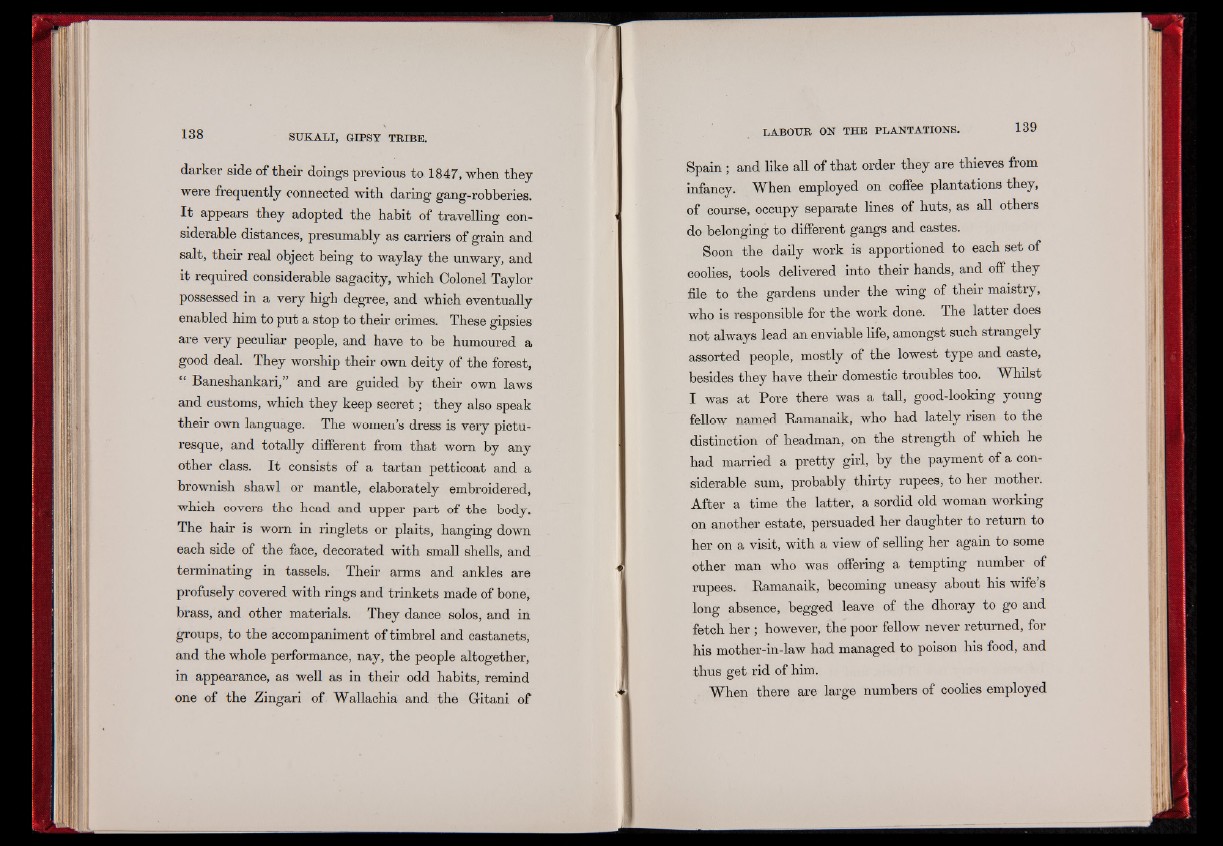
138 SUKALI, GIPSY TRIBE.
darker side of their doings previous to 1847, when they
were frequently connected with daring gang-robheries.
I t appears they adopted the habit of travelling considerable
distances, presumably as carriers of grain and
salt, their real object being to waylay the unwary, and
it required considerable sagacity, which Colonel Taylor
possessed in a very high degree, and which eventually
enabled him to put a stop to their crimes. These gipsies
are very peculiar people, and have to be humoured a
good deal. They worship their own deity of the forest,
“ Baneshankari,” and are guided by their own laws
and customs, which they keep secret; they also speak
their own language. The women’s dress is very picturesque,
and totally different from that worn by any
other class. I t consists of a tartan petticoat and a
brownish shawl or mantle, elaborately embroidered,
which covers the head and upper part of the body.
The hair is worn in ringlets or plaits, hanging down
each side of the face, decorated with small shells, and
terminating in tassels. Their arms and ankles are
profusely covered with rings and trinkets made of bone,
brass, and other materials. They dance solos, and in
groups, to the accompaniment of timbrel and castanets,
and the whole performance, nay, the people altogether,
in appearance, as well as in their odd habits, remind
one of the Zingari of Wallachia and the Gitani of
LABOUR ON THE PLANTATIONS. 139
Spain ; and like all of that order they are thieves from
infancy. W^lien employed on coffee plantations they,
of course, occupy separate lines of huts, as all others
do belonging to different gangs and castes.
Soon the daily work is apportioned to each set of
coolies, tools delivered into their hands, and off they
file to the gardens under the wing of their maistry,
who is responsible for the work done. The latter does
not always lead an enviable life, amongst such strangely
assorted people, mostly of the lowest type and caste,
besides they have their domestic troubles too. Whilst
I was at Pore there was a tall, good-looking young
fellow named Ramanaik, who had lately risen to the
distinction of headman, on the strength of which he
had married a pretty girl, by the payment of a considerable
sum, probably thirty rupees, to her mother.
After a time the latter, a sordid old woman working
on another estate, persuaded her daughter to return to
her on a visit, with a view of selling her again to some
other man who was offering a tempting number of
rupees. Ramanaik, becoming uneasy about his wife’s
long absence, begged leave of the dhoray to go and
fetch her ; however, the poor fellow never returned, for
his mother-in-law had managed to poison his food, and
thus get rid of him.
When there are large numbers of coolies employed